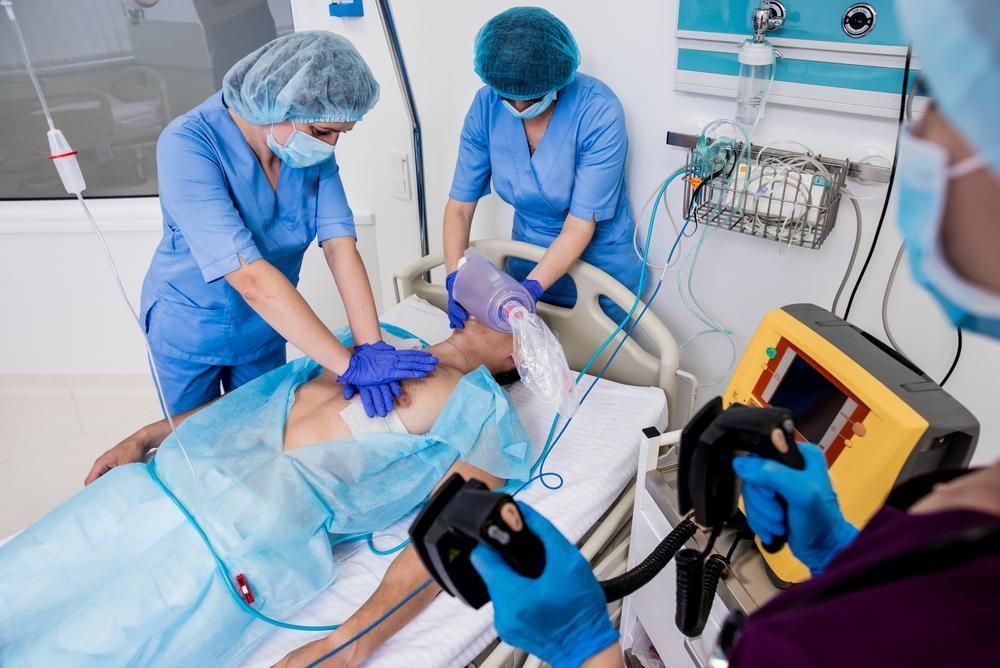Healthcare simulation can ensure professionals remain competent for safe and effective patient care. Healthcare is constantly changing, and so are the competencies of all the providers. The dynamic nature of medical practice, marked by ceaseless advancements in technology and treatment protocols, necessitates a robust framework for the assessment and enhancement of the skills of healthcare practitioners. Competency assessment, a pivotal element in this framework, confirms that healthcare professionals possess the knowledge, skills, and attitudes to perform their duties proficiently. This HealthySimulation.com article by Melissa Tully, BSN, MHPE, RN-BC, explores the role of healthcare simulation in competency assessment and provides insights into its challenges, opportunities, and strategic significance in the growth of a competent healthcare workforce.
The Importance of Competency Assessment in Healthcare
Competency in healthcare spans a wide range of abilities, such as clinical skills, decision-making, communication, and teamwork. These competencies are vital to ensure patient safety, optimization of outcomes, and to build trust within the healthcare system. However, traditional assessment methods, such as written exams and clinical observations, may not fully encapsulate the intricacy of real-world scenarios. This highlights the potential of healthcare simulation, an innovative approach that replicates clinical scenarios to provide a realistic, somewhat risk-free environment for education and evaluation.
The use of clinical simulation in competency assessment presents unique challenges, such as the need for substantial resources, the development of realistic scenarios that encompasses a range of competencies, and the calibration of assessment tools to accurately measure performance. Despite these challenges, healthcare simulation offers unparalleled opportunities for personalized education, almost immediate feedback, and the ability to scale complexity to the learner’s progression. Moreover, healthcare simulation helps assess how to make decisions and work in a team in ways that traditional methods cannot. Healthcare simulation offers a holistic view of a healthcare professional’s competence.
View the LEARN CE/CME Platform Webinar Competency-Based Clinical Education Solutions from Laerdal Medical to learn more!
Objectives, Scope, and Concepts
This article explores the efficacy of healthcare simulation in competency assessment and addresses these key questions:
- How can clinical simulation be effectively integrated into competency assessment strategies for healthcare professionals?
- What are the best practices for the design, implementation, and evaluation of healthcare simulation-based assessments?
- How can challenges in scaling and personalization be addressed to maximize the benefits of simulation for competency assessment?
Keywords and concepts for this article include:
- Competency: A set of defined behaviors that provide a structured guide that enables the identification, evaluation, and development of the behaviors in healthcare professionals.
- Scaling: The process of adjustment of the complexity and scope of clinical simulation scenarios to match healthcare professionals’ educational needs and progress.
- Personalization: Clinical simulation experiences are tailored of clinical simulation experiences to meet each healthcare professional’s educational goals, strengths, and areas for improvement.
To address these questions, this article provides healthcare professional educators, certification bodies, administrators, and policymakers with a comprehensive foundation of the potential of clinical simulation to enhance the competency assessment of healthcare professionals. Through a detailed exploration of current practices, innovative approaches, and future directions, this article will contribute to the discourse on continuously improving patient care through the professional development of healthcare providers.
Literature Review on Simulation for Competency Assessment in Healthcare
The adoption of healthcare simulation in healthcare education and competency assessment has been the subject of extensive research over the past decades. This high-level literature review synthesizes key points, shows trends, and highlights gaps and controversies around the use of healthcare simulation for competency assessment with Iris.ai, an AI research assistant. By comparison and contrast to different approaches, this review aims to delineate the effectiveness of clinical simulation as a tool for evaluation and development in a wide range of competencies for healthcare professionals.
Main Themes and Trends
A dominant theme in the literature is the increased adoption of clinical simulation-based methodologies across various healthcare disciplines. Studies have documented the integration of virtual reality simulation into nursing, medical education, emergency medicine, and surgical courses. This demonstrates the versatility and effectiveness to enhance clinical skills, teamwork, and procedural competencies.
Technological advancements have expanded healthcare simulation possibilities, such as high-fidelity extended reality (XR), into the educational arsenal. These tools offer realistic, immersive educational experiences that closely mimic clinical environments. This allows for the assessment of competencies in contexts that were previously a challenge to replicate.
High-fidelity vs. Low-fidelity Simulations: The literature reveals a debate between high-fidelity simulations versus low-fidelity or task trainers. High-fidelity healthcare simulations are lauded for their realism and the depth of experiential education they provide. However, they need significant financial and logistical resources. In contrast, low-fidelity simulations are more accessible and can effectively develop foundational skills that suggest a complementary role for both types in competency assessment.
Standardized Patients vs. Manikins: Comparisons of standardized patients (SPs) and manikins highlight a trade-off between the realism of interpersonal interactions and the repeatability of specific clinical conditions. SPs offer unique advantages to assess communication, empathy, and professionalism, while manikins excel in scenarios that require technical skill ability and clinical reasoning.
Validity and Reliability of Assessment Tools: A significant gap in the literature pertains to the development of validated and reliable assessment tools for simulation-based evaluations. While many scales and checklists exist, the variability in the application and the lack of standardization raise concerns about the comparability of competency assessments across different institutions and programs. This is critical to the development of the workforce.
Educational Equity and Accessibility: With the high cost and resource intensity, brick-and-mortar healthcare simulation programs have sparked a debate on educational equity. There is a risk that disparities in access to clinical simulation resources could worsen inequalities in healthcare education. This presents an opportunity for researchers to discover an XR technological solution because many believe the technology continues to advance rapidly.
Advantages and Disadvantages
Healthcare simulation supports the development of technical skills, clinical reasoning, and procedural competencies through repetitive practice and feedback. Clinical simulation helps assess soft skills such as teamwork, leadership, and communication, which are increasingly recognized as critical to patient care.
However, the literature also notes disadvantages, such as the high costs associated with healthcare simulation technology and the challenge of the creation of scenarios that accurately reflect the complexity of real-life clinical situations. Additionally, the effectiveness of healthcare simulation is contingent upon the quality of the debrief experience and feedback that requires skilled facilitators.
Effectiveness and Impact
Evidence of the effectiveness of clinical simulation in competency assessment is robust, with studies that report improvements in clinical skills, increased confidence, and better preparedness for real-life clinical situations. Healthcare simulation has also been instrumental in certification and accreditation processes, which provide objective competency evaluation metrics.
The literature on simulation-based competency assessment in healthcare underscores its potential as a transformative tool for education and professional development. Challenges are still present, especially in regard to accessibility and the standardization of assessment tools. The advantages of healthcare simulation, such as its adaptability and ability for comprehensive competency development, are clear. Continued research and innovation are essential to address gaps and use healthcare simulation’s potential in competency assessment.
Learn More About The Shift to Competency-Based Medical Education!
References
- Nestel, D., Kelly, M., Jolly, B., & Watson, M. (2022). Simulation-based summative assessment in healthcare: An overview of key issues. Advances in Simulation, 7, Article 2.
- Lateef, F. (Ed.). (2019). Simulation-based training for assessment of competency. In Simulation and Learning. Springer.
- Hurix Digital. (2019). The role of simulations in effective competency assessment.
- Lateef, F. (Ed.). (2018). Competency assessment in simulation-based training. In Simulation for Training. Springer.








